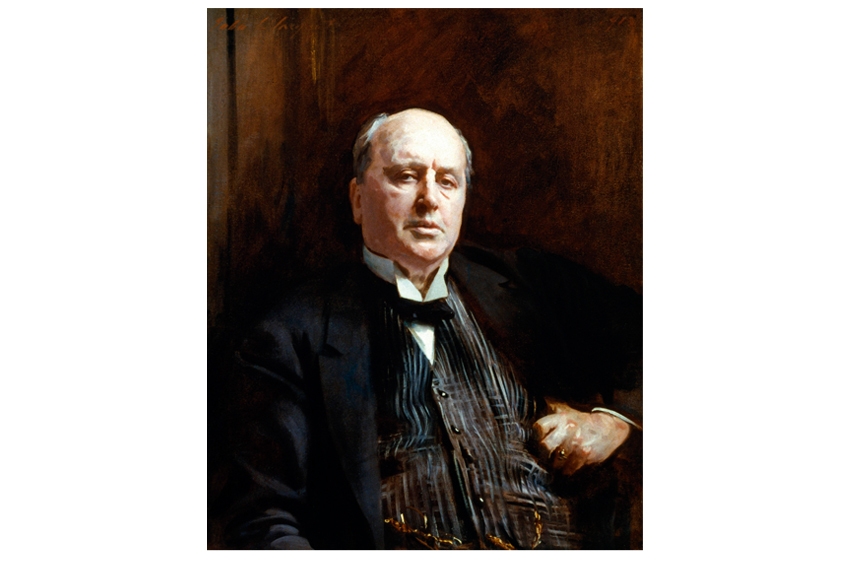The death of a great author often causes interminable displays of corrosive envy. Heirs, acolytes, interpreters and academics resent one another’s claims on the literary estate or cultural heritage. They try to engross the dead talent for their own. They claim privileges, and make spiteful stabs at people with whom they have the closest affinities. It was inevitable that this would be the fate of someone of the momentous stature, but sometimes arcane significance, of Henry James. Yet, as Michael Anesko recounts in this reflective and graceful monograph, the problem was aggravated by James’s conduct during the last decade of his life when he doctored family correspondence, made bonfires of papers, and used disingenuous ploys to try to control what no author can posthumously control. His machinations set a corrupting example for those who survived him.
James’s literary estate fell under the sway of his brother William’s widow Alice and son Harry. They were punctilious but provincially-minded Boston puritans who had chafed at the dead man’s vagaries towards them. They proved ruthless in marginalising Edith Wharton, whose unselfish devotion to her friend was outweighed by the scandalous fact that she was a divorced woman who had written that brazen novel, The Reef.
They were aghast, too, at the effusions in his letters to young men and his pleasure in what Anesko calls ‘the cosy queer hospitality’ of Howard Sturgis, a litterateur with a house called Queen’s Acre. Nor were they averse to the determination of some American critics to reclaim Henry James as an American by devaluing his prizing of European culture and decrying his anglophilia.
The editing of James’s unpublished later works and selected letters was entrusted by his heirs to Percy Lubbock, a disciple whom James had first met at Queen’s Acre and the author of that captivating country-house memoir Earlham. Although Anesko recognises Lubbock as ‘the most intelligent and able of all the Master’s devoted acolytes’, he judges him by 21st-century standards, writing of ‘the torments of his closeted gay life’, treating him as a double-dyed hypocrite for marrying an Irish earl’s rich daughter, and analysing Lubbock’s novel The Region Cloud exclusively in terms of Henry James, although it was avowedly based on Lubbock’s meeting with the painter Sir Hubert von Herkomer.
Amidst much interesting quotation and shrewd analysis, the Lubbock chapter contains several absurdities: that thuggish barbarian hell-hole, Rugby school, is described as providing an ‘exquisite’ education, while undergraduates at ‘intensely homosocial’ Cambridge University are depicted in mass frottage ‘having to wrestle with their own same-sex attractions’.
It was a successor to Lubbock, Leon Edel, who hoped to be remembered as the unfading doyen of Henry James studies. His five-volume biography, with his prefaces to new editions of James’s works and correspondence, were acclaimed from the 1950s onwards. To me they have always seemed portentous, self-advertising and contaminated by facile Freudianism that now seems risibly dated. It is a delight to discover from Anesko that Edel was a suave, conniving scoundrel who used the James family’s fear of the disclosure of homosexual nuances as a way to obtain exclusive control over unpublished manuscript sources. He emerges from Monopolizing the Master as a Robert Maxwell of literary scholarship: monstrously self-centred, a bully and crook, relying on legal intimidation and indignant bluffs to impose his monopoly of the primary sources. The archivists (especially at Harvard) who submitted to his coercion seem unforgivably supine. It is a truly horrid — but compelling — story of intellectual corruption.
Monopolizing the Master will interest aficionados of Henry James, but makes dispiriting reading. Amidst the sordid jockeying it is easy to forget how joyously funny and wise are The Portrait of a Lady, The Bostonians, and the best of James’s short stories.
Anesko, who writes with flashes of wit and even passion, is immune to the neologisms and insular jargon that scar much academic literary criticism. At times he strives too hard to match the Master’s opulent, picturesque vocabulary, and seems to have plucked his prettiest words out of a thesaurus without being sure of their meaning. Wishing, for example, to indicate that Harry James was ultra-reactionary, he calls him ‘archly conservative’, which suggests a coy, eyelash-fluttering fogey, whom the Master might have met at a tea-party at Queen’s Acre.





Comments